Top 8 Questions to Expect in a CWI Interview
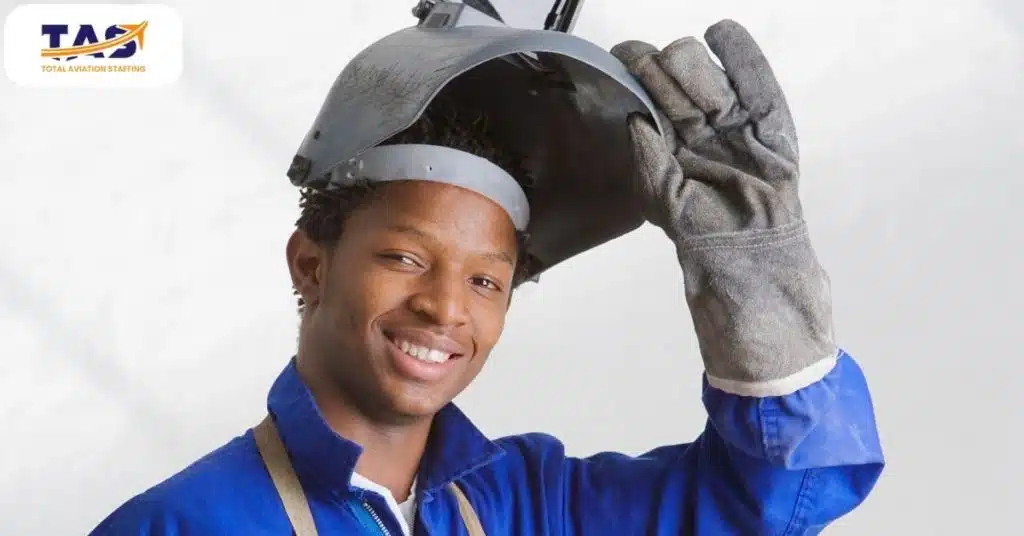
Are you an aspiring Certified Welding Inspector (CWI) looking to land your dream job in the aviation industry? As you prepare for your interview, it’s important to know what questions to expect so that you can confidently demonstrate your knowledge, skills, and experience.
This time, we’ll cover the top 8 questions you can anticipate in a CWI interview in aviation, along with tips on how to answer them effectively. From your experience with aerospace welding to your process for inspecting welds, we’ve got you covered. So, let’s dive in and get you ready to ace that interview!
1. What experience do you have with aerospace welding?
When asked about your experience with aerospace welding in a CWI interview in aviation, it is important to provide a clear and concise response that demonstrates your expertise and knowledge in the field. Begin by highlighting your relevant welding experience, particularly concerning the aerospace industry.
You could talk about the types of materials you have worked with, the techniques you have used, and any specialized equipment or procedures you are familiar with. It’s also important to showcase your ability to interpret engineering drawings and specifications related to welding. Your response should demonstrate your understanding of the unique challenges and quality requirements involved in aerospace welding.
The interviewer asks this question to gauge your level of experience and expertise in the aerospace welding field. As a CWI, your primary responsibility is to ensure that all welding work meets the highest quality standards and adheres to industry and customer specifications.
Therefore, your experience in this area is critical to your ability to perform your job duties effectively. The interviewer wants to know that you have the necessary expertise to evaluate and ensure that all welding work is performed correctly and to the highest standards.
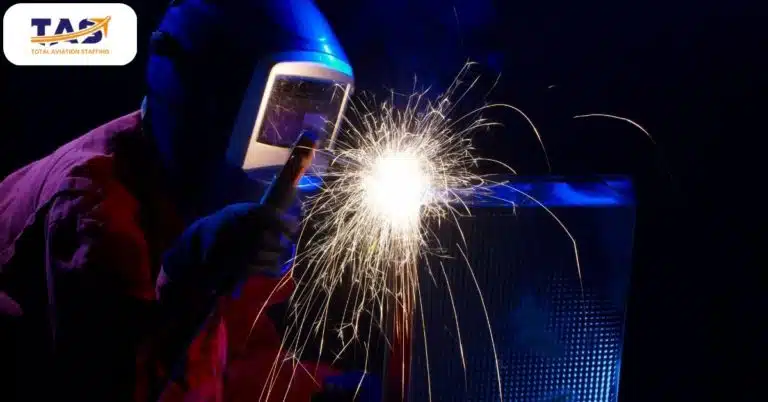
2. What steps do you take to ensure that welding is done correctly and to code?
In an aviation industry job interview, the interviewer may ask about the steps a Certified Welding Inspector (CWI) takes to ensure welding is done correctly and to code. This question is intended to assess the candidate’s knowledge and experience in the field and their approach to quality assurance.
Here are some ways to answer this question:
Start by emphasizing the importance of following welding codes and standards to ensure safety and quality.
Discuss your familiarity with the specific codes and standards that apply to the welding work you do.
Outline the steps you take to prepare for welding, including cleaning and preparing the surfaces to be welded and ensuring that all equipment is in good working order.
Explain how you monitor the welding process during the job, including using visual inspection and non-destructive testing (NDT) techniques when necessary.
Highlight any additional steps you take to ensure that the welding meets code requirements, such as conducting a final inspection or submitting the work for third-party inspection.
Finally, emphasize your commitment to ongoing learning and improvement, including staying up to date with any changes or updates to codes and standards in your field.
By addressing these key points in your answer, you can demonstrate your knowledge and experience with welding processes, as well as your commitment to safety and quality in your work.
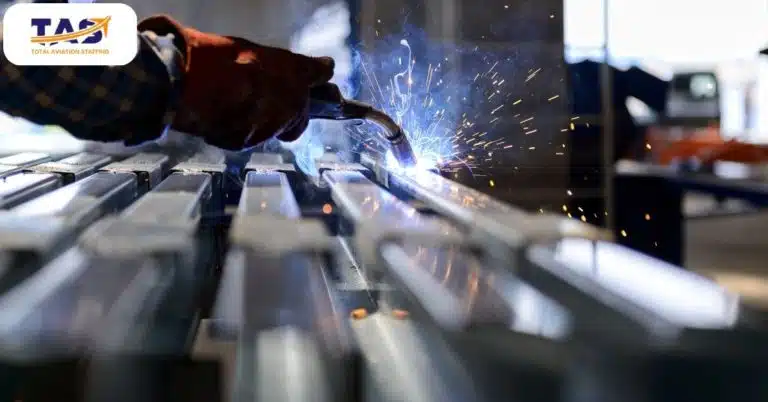
3. Can you describe your experience with interpreting engineering blueprints and diagrams?
In the field of aviation, it is crucial to have a strong understanding of engineering blueprints and diagrams. During a CWI interview, the interviewer may ask about an interviewee’s experience with interpreting these documents to assess their ability to accurately follow instructions and ensure the quality of their work.
Key points for answering the question:
Start by discussing previous experience working with engineering blueprints and diagrams.
Mention specific tools or techniques you use to interpret and understand the information in the documents.
Provide examples of successful projects or situations where you have used your blueprint interpretation skills.
Discuss any relevant certifications or training you have completed in interpreting engineering blueprints and diagrams.
The interviewer wants to ensure that the interviewee has the necessary skills and experience to accurately interpret engineering blueprints and diagrams to ensure the quality of their work. By highlighting previous experience, tools, techniques, and certifications, the interviewee can demonstrate their proficiency in this area.

4. How do you ensure compliance with quality and safety standards in your work?
As a CWI in aviation, it is crucial to ensure compliance with quality and safety standards to maintain the integrity of aircraft structures. Therefore, the interviewer may ask this question to gauge the interviewee’s understanding of safety regulations and quality control measures.
Ways to answer this question:
Mention the importance of safety and quality standards in the aviation industry
Discuss the specific safety regulations and quality control measures that the interviewee follows in their work
Explain how the interviewee ensures that all materials and equipment used are up to industry standards
Describe the steps taken to ensure that all work is completed in compliance with regulatory requirements
Highlight the importance of thorough inspections and testing to ensure quality and safety
Discuss the process of documentation and record-keeping to ensure compliance with industry standards and regulations
A candidate’s proficiency in safety regulations and quality control measures is critical in securing a CWI position in aviation. Demonstrating a strong commitment to upholding the highest standards in their work highlights their responsible and reliable nature. By showcasing their expertise in these areas, candidates can establish themselves as the ideal candidate for the role.
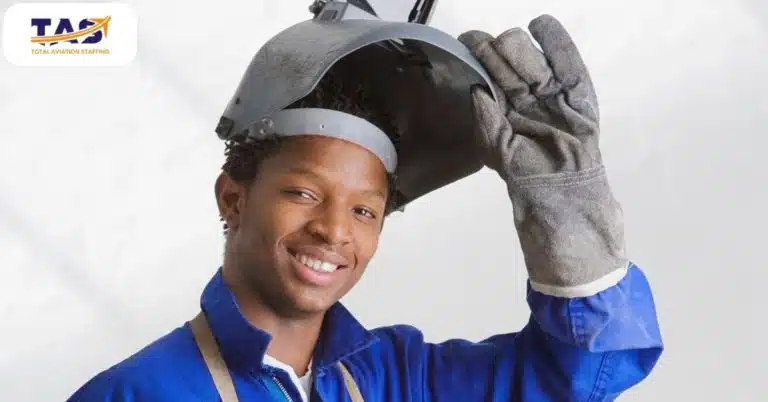
5. Have you ever dealt with a welding failure? If so, can you describe the situation and how you resolved it?
When answering the question about a welding failure, it’s essential to remain calm and provide a concise and straightforward response.
Here’s how you can approach the question:
Start by acknowledging that you’ve experienced a welding failure and describe the situation briefly.
Explain the steps you took to identify the root cause of the failure, such as reviewing the welding parameters, inspecting the weld, and consulting with colleagues or experts.
Describe the actions you took to address the issue, such as repairing the weld or replacing the faulty components.
Emphasize the importance of conducting a thorough investigation to prevent similar failures in the future.
Lastly, conclude by sharing how you learned from the experience and implemented measures to avoid similar issues in your future work.
The interviewer asks this question to assess your ability to identify and resolve welding failures, which are critical to maintaining safety and quality standards in aviation welding. It also helps them to evaluate your problem-solving skills, attention to detail, and ability to learn from past experiences. Providing a thoughtful and detailed response can demonstrate your competence and readiness for the job.
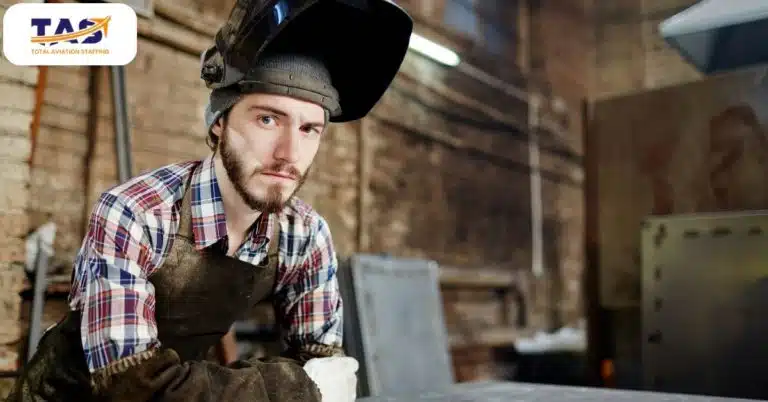
6. How do you stay up-to-date with the latest welding techniques and technologies?
To answer this question, an interviewee should highlight their commitment to ongoing learning and professional development. They could mention attending welding conferences, subscribing to industry publications, or participating in training programs. It is also important to mention their willingness to adapt and try new techniques, as well as their ability to evaluate the benefits and drawbacks of different approaches.
Here are some tips for answering this question:
Emphasize the importance of staying current with the latest techniques and technologies
Discuss your experience attending welding conferences or participating in training programs
Mention your commitment to ongoing learning and professional development
Highlight your willingness to adapt and try new techniques
Discuss your ability to evaluate the benefits and drawbacks of different approaches
During an interview for an aviation-related position, the interviewer may ask a question aimed at evaluating the candidate’s commitment to staying informed about the latest developments in the field. In aviation, being knowledgeable about the most recent welding technologies and techniques is essential to maintain safety and meeting industry standards. A candidate who demonstrates a sincere eagerness to learn and enhance their skills is likely to be a suitable match for the position.
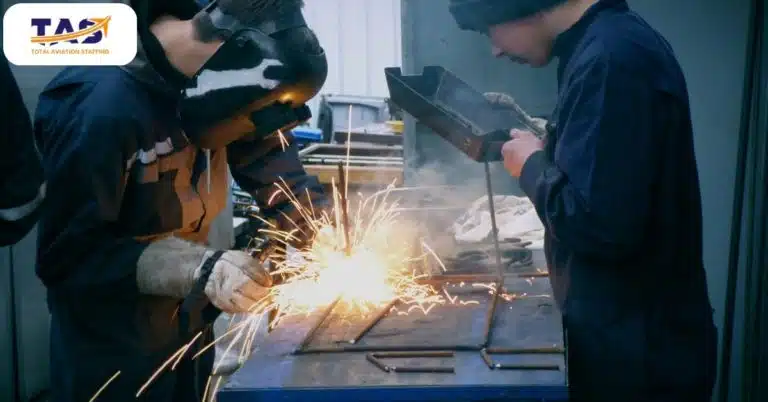
7. What steps do you take to communicate effectively with team members and management about welding-related issues?
The ability to communicate effectively is essential for success in any job, particularly in a welding role within the aviation industry. This question aims to assess an interviewee’s communication skills and their ability to work collaboratively with team members and management to resolve welding-related issues.
Here are some tips on how to answer this question:
Provide specific examples of situations where you have effectively communicated with team members and management about welding-related issues.
Explain the importance of clear and concise communication when working with complex technical issues such as welding.
Highlight your ability to listen actively, ask questions, and provide updates to team members and management throughout the welding process.
Discuss any tools or techniques you use to improve communication, such as project management software or regular team meetings.
Emphasize the importance of a collaborative work environment and how you work to foster open communication among team members.
In the aviation industry, effective communication plays a crucial role in achieving positive project outcomes and upholding a secure and productive work environment. Therefore, possessing excellent communication skills is an essential quality for any welding professional to have.
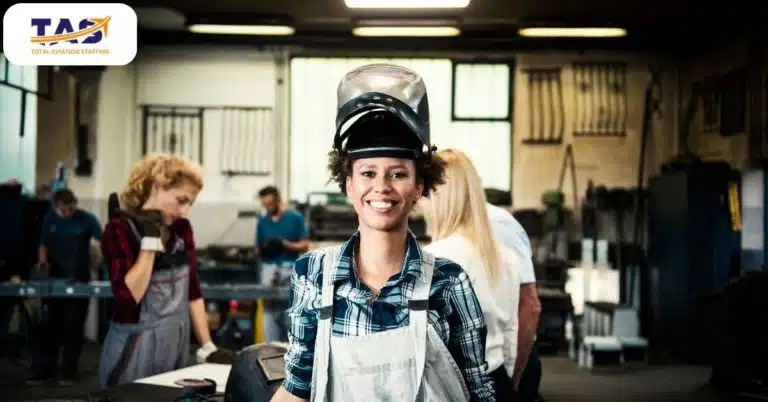
8. Can you walk me through your process for inspecting welds and identifying defects?
During a CWI interview in aviation, it’s important for the interviewee to remember the following tips when answering a question related to inspecting welds:
Provide a brief explanation of the process of inspecting welds and their significance.
Highlight your training and experience in welding inspection.
Elaborate on the visual inspection process, including the tools you use and what to look for.
Discuss non-destructive testing techniques such as ultrasonic testing, radiography, and dye penetrant inspection.
Explain the procedure for identifying and reporting defects, including documentation and communication with team members.
Stress the importance of attention to detail and thoroughness in welding inspection.
Mention any additional qualifications or experience you have in welding inspection.
The interviewer is interested in assessing the candidate’s knowledge and expertise in welding inspection. The ability to inspect welds effectively and identify defects is vital in maintaining safety and quality in aviation welding. As such, the interviewer wants to confirm that the candidate is competent and possesses the necessary skills to perform the job proficiently.
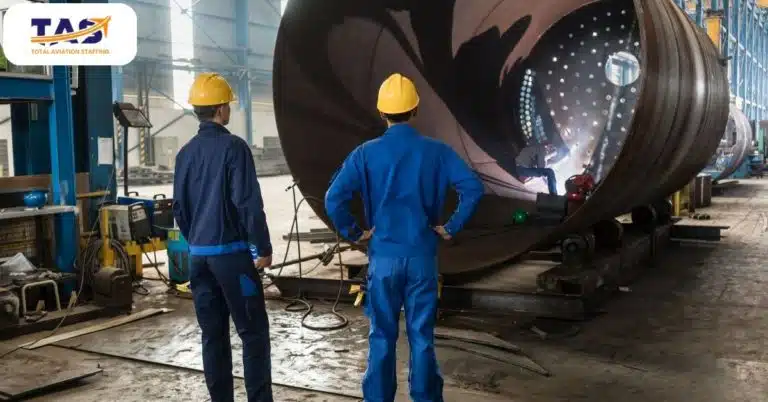
Takeaways
Preparation is key when facing a Certified Welding Inspector (CWI) interview in aviation. By anticipating and practicing your responses to the most common questions, you can demonstrate your knowledge, skills, and experience to potential employers. Remember to focus on safety, quality, and compliance with codes and standards in your answers, and to provide specific examples whenever possible. By doing so, you can increase your chances of landing that coveted job in the aviation industry as a certified welding inspector.
Are you looking for an exciting aviation career? Total Aviation Staffing has the perfect job for you! With our help, you can find a role that matches your skills and experience. We can also boost your resume and help get closer to landing your dream full-time job. Contact us now and take control of your future!
